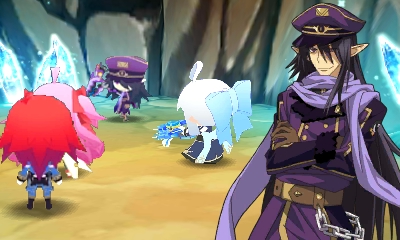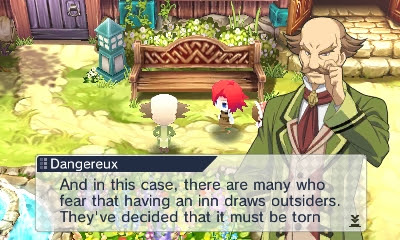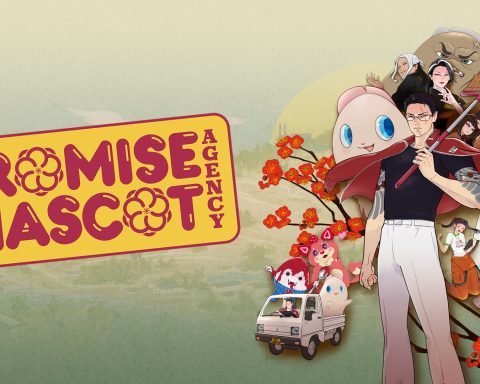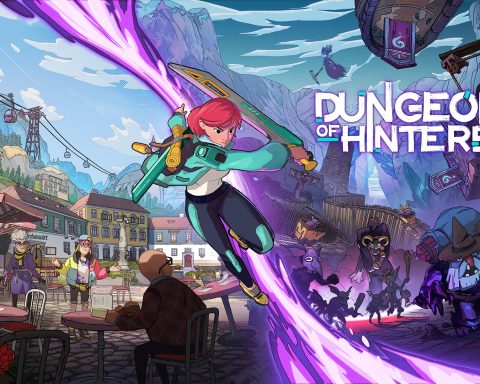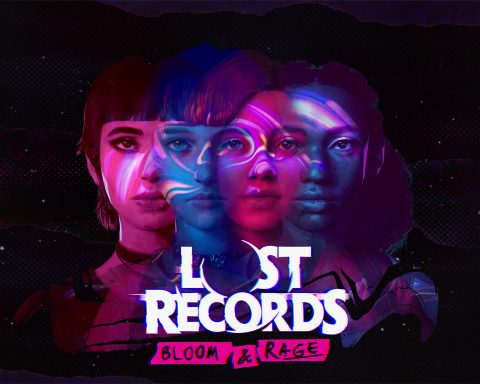Purely as a curiosity, before we even talk about its merits as a game, Lord of Magna is an essential purchase for any fan of Japanese RPGs, because it’s a game that should have never happened. It was in its early stages of development at Neverland (the company behind the Rune Factory franchise) before that company went belly up.
However, Marvelous Entertainment, which picked up much of Neverland’s assets, saw real potential in Lord of Magna, and continued to back the vision of producer, Yoshifumi Hashimoto. So much so that Marvelous actually reassembled critical team members on the project in order to complete it to vision. And so Lord of Magna: Maiden Heaven is not a Neverland game, and yet it’s the very last game by Neverland. And it’s a heck of final legacy.
Imagine if you will a game like Samurai Warriors or Dynasty Warriors. You need to wade through hordes of enemies on the way to the leader, and then take that leader out in order to destroy the unit. Now throw in some Gauntlet, where enemies will also spawn out of hot spots that you’ll also need to destroy. Finally, take all that action and turn it into a turn-based tactical RPG. You’ve then got the gameplay of Lord of Magna in a nutshell. You’ve never played something quite like this before, I’ll warrant.
It really does play out just as I’ve described above. Your small unit of heroes (each with their own specialised role in combat, with some focused on melee attack, others focused on ranged and support), each takes their turn to move around in a tactical RPG format, before crashing into hordes of enemies and trying to carve a path to the leaders. There’s all the usual JRPG elements, such as level-ups, consumable items, and each character has their own unique special abilities, but the other feature that really sets Lord of Magna’s combat system apart (aside from the massive number of enemies on screen at once) is the ability to create “combos” by whacking enemies into one another. Such is the force of each strike of your character’s weapons that they will send enemies flying, and such is the weakness of the enemies (aside from the leaders) that when they’re hit by a flying enemy, they themselves will take off, potentially hitting another enemy.
Lord of Magna quickly becomes like a turn-based pinball game, where you carefully line your characters up to try to bounce the enemies they hit into as many other enemies as possible. Chaining ten defeated enemies together in one attack isn’t necessarily easy, but it’s worth taking the time to ponder out, because it grants a character that does so another turn.
It takes a battle or two to the hang of this system, but only a battle or two, and the game’s difficulty remains quite soft throughout the experience, so it’s not the end of the world if you’re not able to line up massive combos. It’s an enjoyable and accessible system, but like Hashimoto’s work on Rune Factory, the combat isn’t the focus of Lord of Magna.
Instead (and quite surprisingly), this is a very text-heavy narrative-based game, almost approaching a visual novel in terms of the sheer amount of text to scroll through in places. There’s a lot of reading to do in-between the combat scenarios, not unlike what we saw in games like Tears to Tiara II, and the characters in Lord of Magna are fully developed personalities as a result. And, while the game might look very different to Rune Factory, in practice it is every bit the same expression of love for the pastoral lifestyle. The lead character – whatever you want to call him – runs an inn on an island so xenophobic that it doesn’t get much business. But a sense of duty to his father means this hero perseveres to keep the inn open. Then, as he discoverers he has a link to a group of magical warrior girls and invites them to live in his inn (rent free, of course), he starts seeing them as family, and is fiercely protective of them.
There’s an innocence to it all that is every bit as charismatic as the Rune Factory franchise’s rejection of the “big city” way of life. It’s also a love letter to traditional Japanese values of duty, hospitality, and perseverance, even as the narrative works to consciously avoid becoming too traditionalist and nationalist, as would also befit traditional Japanese values. For example, even as the townfolk of the island insist the main hero to chase out the “outsiders” from his inn and shut it down to prevent any other “aliens” from staying, the hero rejects the policy of isolationism and looks for a way to keep his inn going and protect his “family.” It’s a very different to the Japan that only emerged from complete isolation less than 200 years ago, and remains wary of outsiders on a cultural level since (especially in rural areas).
Outside of the drama, the characters also have a yearning for and love of the simple way of life. One of the main cast runs a farm, which is presented as providing all the nourishment that the inn’s residents could even need. There’s an appreciation of gardening (though not like a full gardening sub-game as you’d find in Rune Factory). There’s no real desire for commercial success or complex entertainments, with each of the characters content with a life of hard work and simple joys. It’s innocent, perhaps naive, and absolutely the kind of game you’d expect from someone who produced the narratives and thematic direction of the Rune Factory franchise.
Even the game’s fan service flows on from this idea. Each of the girls are dressed up in maid uniforms to take on various tasks for the good of the inn when not in battle. They do this out of a sense of obligation and gratitude, and before long one girl’s cooking, another has built a forge. There’s the odd scene where a girl will twirl her skirt and you’ll get a flash of leg, and some of the conversations are very much there solely for the purpose of fan service – for instance one character rivals Ringabel from Bravely Default for his pure lecherousness. There’s also the obligatory bath scenes, because as the Japanese equivalent of a country inn, Lord of Magna has a bath (that can impart beneficial effects on the characters before they go to battle).
But all of that fits within the context of the game, is quite restrained in frequency, and, importantly, the girls are the ones with the real power and significance behind them. They’re all sisters, and all based on the Goddess, Artemis, from Greek mythology. Artemis was, of course, the Goddess of the hunt, as well as her more domestic portfolios, and in basing the characters on that specific character, Hashimoto ensures that they’re seen as the strong but feminine warrior woman type, rather than the dutiful-maid-with-weapons trope of more common anime. And so, despite the strong harem theme, Lord of Magna is not unduly exploitative, and even at its most extreme, it’s more flirty than raunchy in its intent. That youthful sense of flirtation fits well with the innocence that dominates the tone of the rest of the game.
Lord of Magna’s narrative espousal of a simple, rural lifestyle is backed up through both its beautiful soundtrack and art style. Pastel colours and music dominated by strings and woodwinds creates the same vibrant aesthetic of rural life that Rune Factory and Harvest Moon are so renowned for, and the chibi-style characters and charming-rather-than-menacing enemies contribute to its overwhelming innocence. It’s not the most complex canvas we’ve seen on the 3DS to date, but the raw aesthetic depth of the game makes it one of the most beautiful.
Lord of Magna is pure comfort gaming. It wont dazzle you with its production values, nor will it break your mind over its philosophy or test your skills at JRPGs with its difficulty. Instead, just like the hero’s obsession with adopting new people into his ever-growing “family,” this is a game that you’ll develop a deep and personal attachment to, because it was built with a purity of intention that is so rare these days, and tugs on the heart strings in just the right way.
– Matt S.
Editor-in-Chief
Find me on Twitter: @digitallydownld



